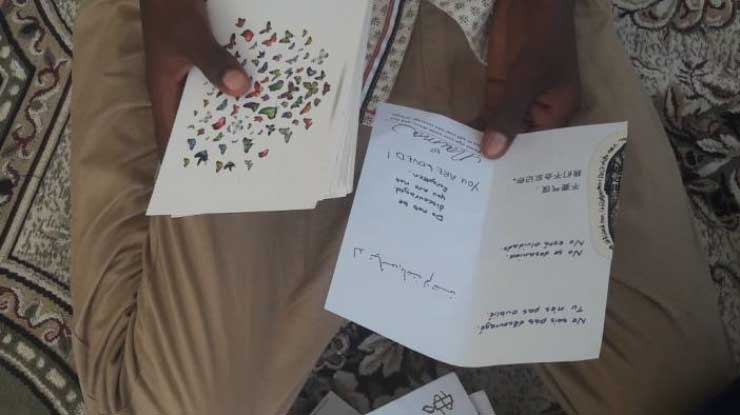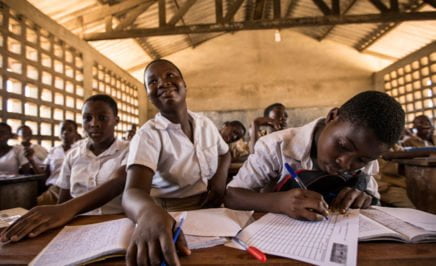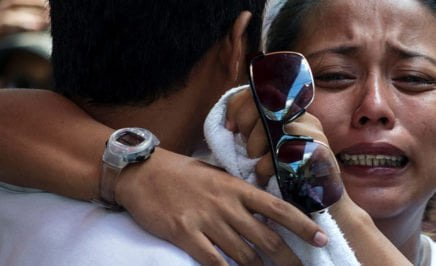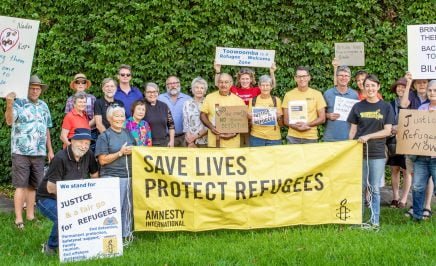Mahadine, an online activist in Chad, was released on 5 April after spending more than 18 months in prison on fabricated charges. He had been facing a life sentence for a Facebook post critical of the government.
What happened?
Mahadine was conditionally released on 5 April 2018 by the High Court of Ndjamena. The initial charges against him, including charges of threatening national security, were also dropped and replaced by the lesser charge of ‘defamation’.
Mahadine was arrested on 30 September 2016 by a group of at least seven men believed to be members of the Chad intelligence service in the Bololo neighbourhood in N’Djamena.
The arrest occurred after Mahadine posted several videos on Facebook criticizing the Chadian government’s alleged mismanagement of public funds and raised concerns about the country’s current economic crisis. After the arrest he was detained for three days in an unofficial detention centre where he says he was beaten and electrocuted, and not given water or food.
On 13 October 2016, he was transferred to the Am Sinene prison in N’Djamena where he was held with his feet chained for several weeks.
He was charged in October 2016, months after his arrest in April 2016. He remained in prison until 5 April 2018, and was released after it was ruled that his pre-trial detention exceeded legal limit for preventative detention prescribed by Chadian law.
Background
Prior to presidential elections in April 2016, access to social media in Chad was regularly restricted as part of the government’s attempt to silence critics. Chadian President Idriss Deby was re-elected in the April 2016 presidential election. He has been in power since in 1990.
Social media restrictions continued until the end of 2016. However, access to some websites and blogs continues to be blocked, and human rights defenders continue to be threatened and intimidated.
In the last two years, demonstrations that were not part of the election campaign have been forbidden, and activists have been arrested and imprisoned for holding peaceful demonstrations. Two human rights defenders fled the country, and journalists have been summoned or arrested by the National Agency of Security after publishing articles seen as critical of the government or people close to the regime.
How did Amnesty respond?
As part of Write for Rights in 2017, Amnesty supporters took more than 690,000 actions for Mahadine.

In Australia nearly 12,000 people took action to release Mahadine, including members of the NSW Schools network, who collected 1,258 actions through their schools conference. One school in NSW even lead a street blitz action!
Many Amnesty supporters wrote letters of solidarity to Mahadine, including a solidarity card read by his son.
Following a visit by Amnesty’s Central African team, Mahadine passed on the following message:
“I thank you with all my heart. Thank you for your commitment and engagement for the protection and respect of human rights in Africa … I am very honored to be among the cases that you have selected for your Write for Rights campaign. I am honored to know people like you who denounce the injustices committed by the authorities and governments. You have brought joy into my heart. Thank you.”
What next?
Although Mahadine has been released from prison, he stands trial on 19 April for the defamation charges.
The positive steps taken by the Chadian authorities in releasing Mahadine are welcomed by Amnesty International. We call on the authorities to drop all charges against Mahadine as he is being prosecuted solely for peacefully exercising his right to freedom of expression. We urge authorities to investigate the allegations that Mahadine was tortured while in detention.



